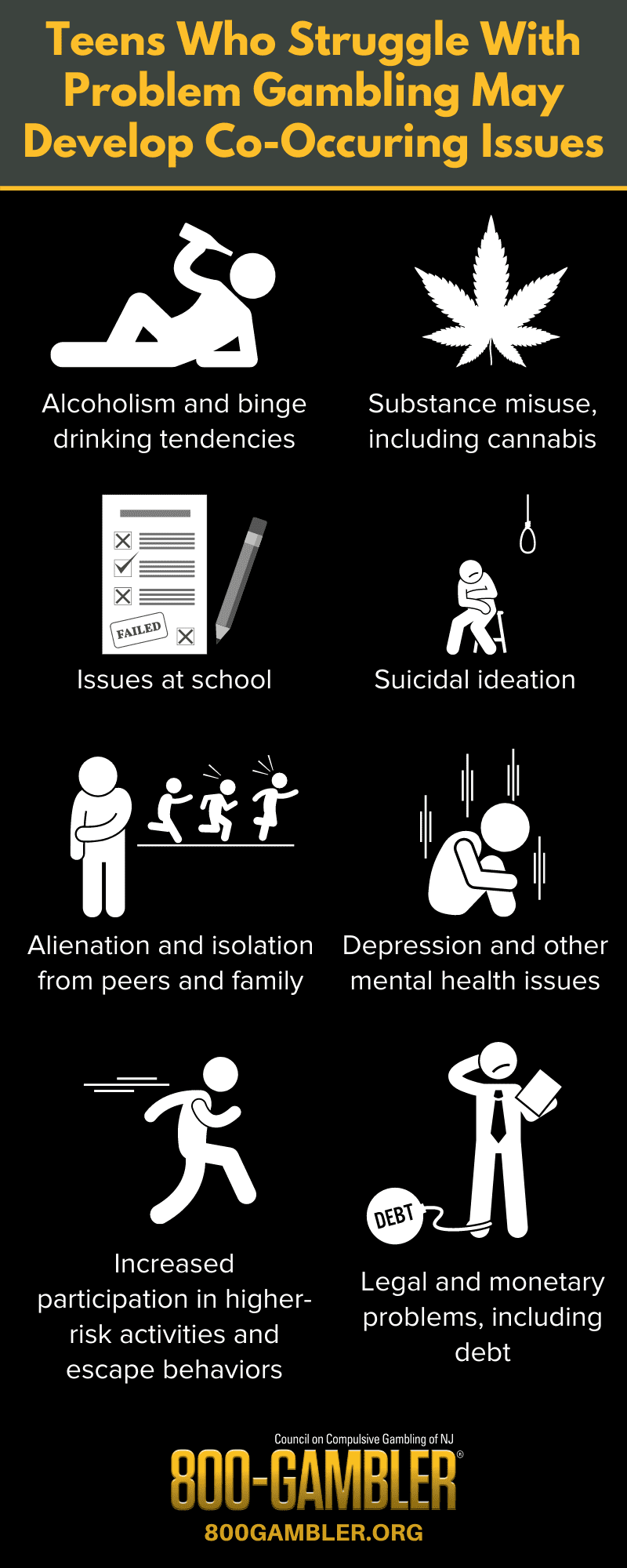What does the stereotype of a problem gambler look like to you? Most people picture an average, white, professional man, but that’s far from the full picture of people affected by problem gambling. Contrary to popular belief, teenagers are also at risk for problem gambling habits. If you don’t know what to look for, you may miss it.
Brain development plays a role in teenage problem gambling.
Teenagers may be exposed to adult activities, such as gambling, without the coping skills and decision-making matrix of a fully autonomous adult. As such, teenagers may struggle with gambling in a way that floats under the radar of suspecting adults. Similarly, teenage problem gambling can take years to develop.
A 2001 study of problem gamblers demonstrated that many people who developed problem gambling later in life had been participating in gambling activities since they were approximately ten years old. Gambling is an ideal activity for teenagers because it offers the option of expending low effort for the possibility of a high reward.
According to a 2008 study of Oregon teens, over 60% of those surveyed had engaged in gambling. Based on this study, it’s estimated that one teenager per classroom struggles with a gambling problem.
Teens who gamble are also more likely to engage in other risky behaviors and struggle in other areas of their life.
Teenage gamblers tend to prefer free internet gambling games, card games, sports betting, and games that demonstrate their personal prowess at a skill. Like adults, teenagers with problem gambling habits are also more likely to develop issues in other areas of their life.

Defining Problem Gambling in Younger Demographics
Problem gambling occurs in roughly 4-7% of teenagers, which is nearly twice the rate of adults. In the teenage demographic, male students are more likely to develop problem gambling behaviors, but that doesn’t mean that female students aren’t vulnerable.
Keep an eye out for the below signs of problem gambling in teenagers:
- Enjoyment in the risk and reward of gambling
- Tries to borrow money or write IOUs for the purpose of gambling
- Makes desperate attempts to stay in a game at all costs
- Continues to play despite losing a great deal
- Plays online games with personal, parental, or stolen credit cards
- Sells personal belongings for money or steals others’ belongings to sell
- Unexplained sums of money and/or debt
- Alienation from friends, hobbies, or sports teams
- Regularly breaks curfew or disobeys house rules
- Spends hours on gaming/gambling websites
- Unexplained absences from work, school, or other responsibilities
- Obsesses over sports scores, stats, and outcomes
- Phone bill displays frequent calls to “900” gambling numbers
Problem gambling habits can develop in anyone.
Despite pop culture depictions of the poster child for problem gambling, anyone can develop these behavior patterns. For this reason, parents need to stay in tune with their teenagers and address potential issues before they can impact their teenager’s future success.
Many adults who struggle with problem gambling have struggled since their teenage years. One of the best ways to prevent the development of problem gambling is monitoring your teenager’s activities, frequently asking about friendships, grades, and extracurriculars. Sudden changes may alert parents of deeper issues that may lead to future problem gambling.
If you know a teenager struggling with problem gambling, early intervention can make a big difference for them. Contact us today to connect with local resources and support for problem gambling in NJ.
Sources:
https://preventionlane.org/prevention-topics/problem-gambling-prevention/youth-gaming-gambling



